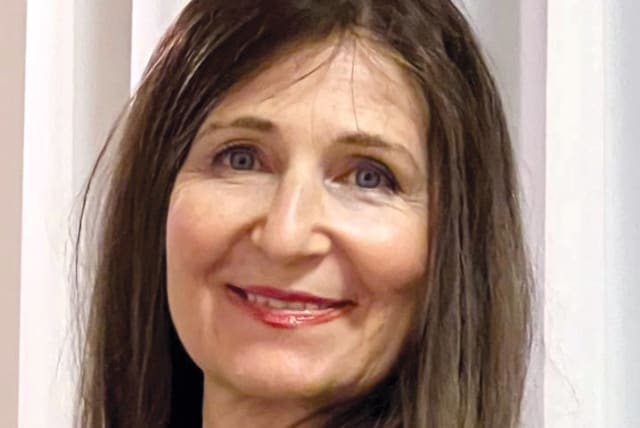'True to My God and Country': Groundbreaking book on US Jews fighting in WWII - review

It is amazing how Ouzan included so many chaplains who fostered respect for Judaism in this great volume.
Françoise S. Ouzan’s new book, True to My God and Country, is for me, both highly nostalgic and very relevant today. As a Jewish chaplain during the Vietnam War in the mid-1960s, I identify with a great deal of what the author writes. Furthermore, I am acquainted with many of the chaplains of whom she speaks, even though her writings concentrate on a generation that preceded my involvement with the military.
Ouzan, a historian who lives in Jerusalem, does not shy away from speaking about the dark side of military life during the war years. Antisemitism existed in and out of military barracks, even among high-ranking officers. I was privileged to meet Rabbi Roland Gittelsohn in my hometown of Brookline, Massachusetts. I learned from Ouzan’s book that a few Christian chaplains prevented him from delivering a memorial sermon at an interfaith religious service to dedicate the Marine cemetery of Iwo Jima on the pretext that Christian graves were in the majority. He eventually delivered his iconic eulogy to Jewish servicemen. A noted chaplain, Rabbi Judah Nadich became the adviser on Jewish affairs to General Dwight D. Eisenhower in the European theater and retired as lieutenant colonel, the same rank I was honored to attain in the USAir Force.
Respect for Judaism in the US Army
It is amazing how Ouzan included so many chaplains who fostered respect for Judaism in this great volume. Her book focuses on the experiences and achievements of young women and men in the American military who confronted prejudice and yet fought as proud Americans and Jews. Françoise Ouzan may be the first chronicler to analyze in so many details the role of Jewish women who volunteered in the various branches of the American military, mainly as pilots of the WASP (Women Airforce Service Pilots), nurses, evacuation medicine nurses, mechanics, or WACs (Women’s Army Corps), often in dangerous assignments. They are part of the 10,000 Jewish personnel who served our country with pride during WW II. Ouzan demonstrates how they strove to be accepted in the military and excelled in their assignments right from basic training or in their military drills as cadets yearning to fly military aircraft. Some pilots and nurses who pioneered air evacuation medicine lost their lives and were missing in action (MIA) over the Pacific. They “crossed gender and social boundaries,” as the author comments, while being doubly victims of discrimination.
We who served are familiar with the letter H, for “Hebrew,” that was inscribed on the dog tags of Jewish fighting men and servicewomen. Ouzan acquaints us about the origin of identifying those of all religions so that in case of a soldier being killed while in action, proper burial may be afforded the deceased. And if one ever wondered why there are so few Stars of David in any given military cemetery, as I did indeed question when visiting Normandy, the author explains that when most Jewish parents were notified about the casualty of their loved ones, the first thing they did was to request that the body be transferred as soon as possible to a Jewish cemetery for proper burial. But there were also cases of negligence, when Jews were buried under a cross, Ouzan reports. The H on the dog tag was optional; and if a Jewish soldier chose to be more discreet for whatever reason (including the fear of antisemitism), it was not inscribed on the dog tag. This is one of the reasons, the author contends, that the number of Jewish service members (usually evaluated at more than half a million) is nearer, and most probably is over 600,000 Jews, if you recall the number of Jewish airmen whose planes crashed or who were MIA and whose dog tags were destroyed. Operation Benjamin aims at locating Jewish soldiers at American cemeteries throughout the world who were buried under markers that do not represent their Jewish heritage. They then attempt to correct the mistakes.
Ouzan’s excellent book is written clearly and is full of information and inspiration. It includes the experiences of the POWs at the hands of the Japanese and thus fills a gap in our understanding of American Jews in World War II. Her volume convincingly demonstrates how Jewish servicewomen and servicemen in far-flung areas of French North Africa, the Pacific islands, the Philippines, and India strengthened their Jewish American identities through their encounters with Jews and Jewish communities.■
- True to My God and Country: How Jewish Americans Fought in World War II
- Françoise S. Ouzan
- Indiana University Press, 2024
- 272 pages; $35 paperback
Jerusalem Post Store
`; document.getElementById("linkPremium").innerHTML = cont; var divWithLink = document.getElementById("premium-link"); if (divWithLink !== null && divWithLink !== 'undefined') { divWithLink.style.border = "solid 1px #cb0f3e"; divWithLink.style.textAlign = "center"; divWithLink.style.marginBottom = "15px"; divWithLink.style.marginTop = "15px"; divWithLink.style.width = "100%"; divWithLink.style.backgroundColor = "#122952"; divWithLink.style.color = "#ffffff"; divWithLink.style.lineHeight = "1.5"; } } (function (v, i) { });
